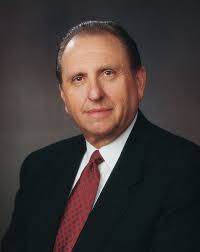I recently re-read Enzio Busche’s book, Yearning for the Living God. Enzio Busche, who became a Mormon in his late twenties in his homeland of Germany, is a former general leader in the Church who had responsibilities over many areas.
The book is a collection of experiences he has had in seeking a personal relationship with God and helping others to do so as well.
Here’s an account from the 1960s he shares about a young man named Wolfgang. I particularly like this experience because it shows what can happen when we turn to God for help. Too often we think a matter is too small or simply falls outside the domain of what God can – or should – do for us.
[Wolfgang] was working as an unskilled laborer in a foundry where hot iron was poured into molds after it had been melted in huge ovens. He was working in a very hard environment among all kinds of rough and tumble people and felt most unfulfilled in his job. He suffered especially because of his young age. He was only seventeen, and he was the special target of a tall, husky co-worker who teased him whenever he could. This man would deliberately take Wolfgang’s tools, then, when confronted by Wolfgang, would gruffly defend himself saying, “Are you calling me a thief?” The man would regularly shove him around and even beat him up.
One day when Wolfgang was again humiliated by that man’s behavior, he remembered that he had learned that God is alive and cares to help us when we ask Him in faith. He realized he could ask God to fight his battles with him. When a hammer Wolfgang had just purchased turned up missing and the man claimed it was his, Wolfgang went into the restroom and knelt in prayer to Heavenly Father. He explained with emotions of a soul in despair, “I have this miserable situation, and I don’t know how to deal with it. What should I do?”
[In relating this story], Wolfgang told…how he suddenly felt a great peace come into his soul. Calmly, he went back to the man and apologized to him, saying, “I have accused you of things for which I am sorry. I do not want to accuse you. I have so many reasons to be grateful that I am permitted to work with you. You are a good man, and I look up to you as an example because I need to have an example in my life.” Wolfgang said this sincerely because he was also aware of the goodness hidden in that man.
The man broke down in tears and said, “I am not a good man. I am not a good example.” The man then admitted to taking Wolfgang’s tools and returned them all to him, saying, “I am not worthy to be an example to you but, from now on, I will try” That was the beginning of a solid friendship.I still remember the overwhelming happiness Wolfgang radiated as he described that first experience with the power of prayer and the Lord’s ability to help us deal with difficult circumstances, even turning around seemingly hopeless situations.

